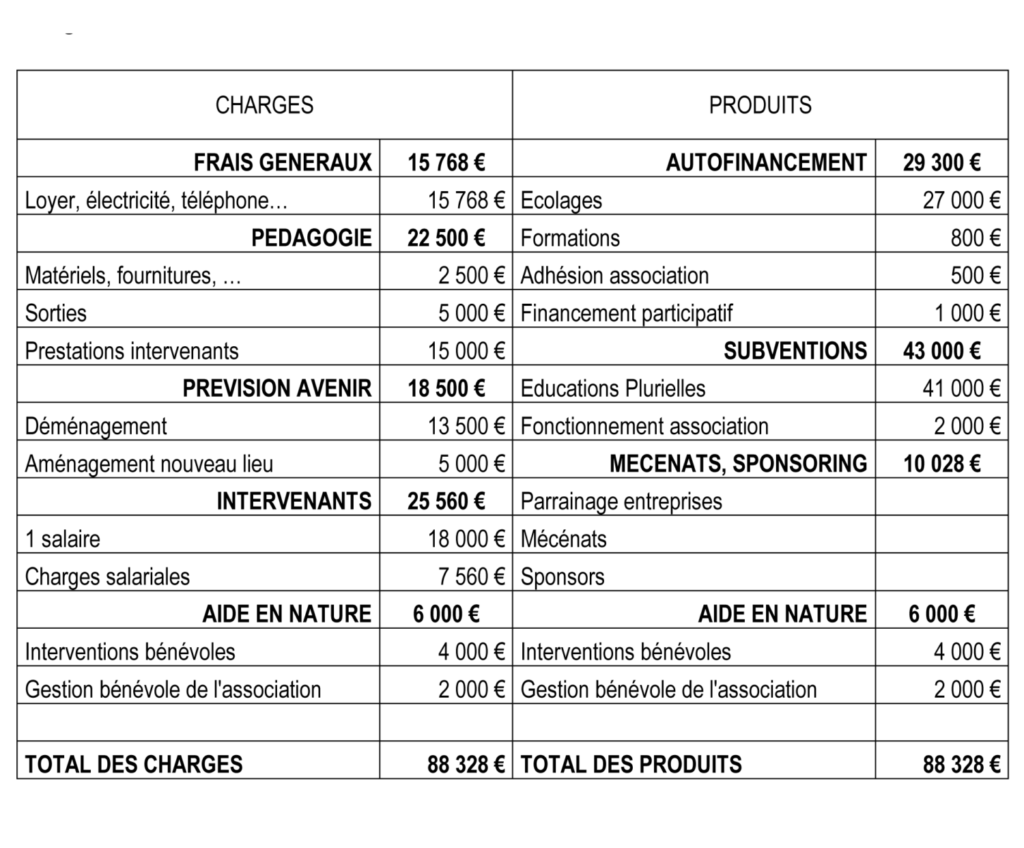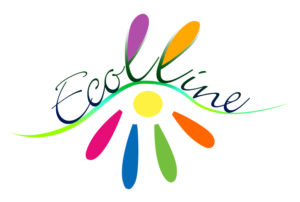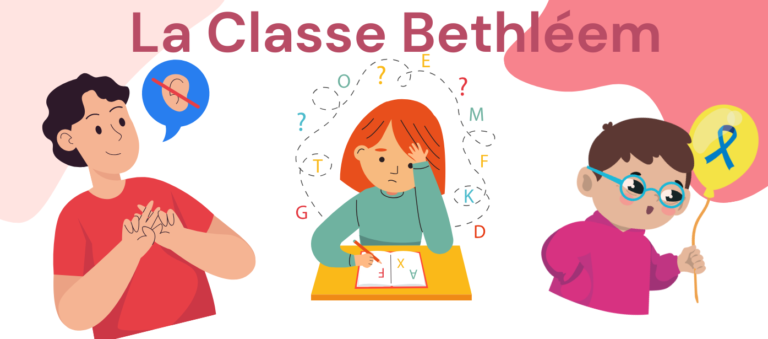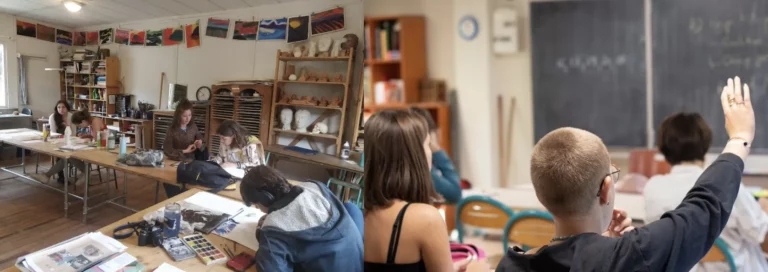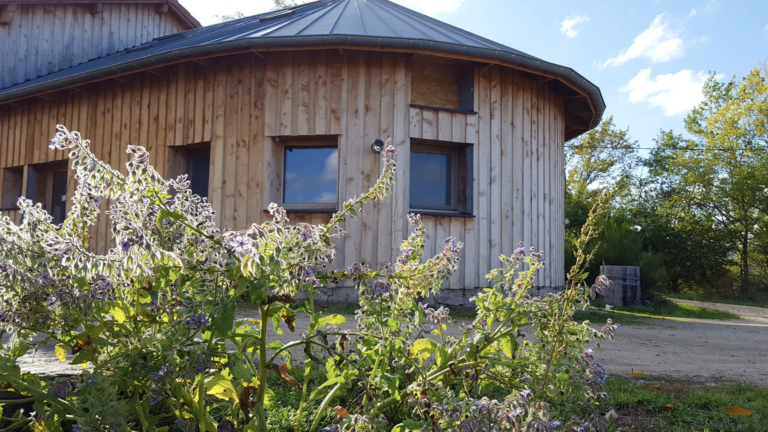Ecolline,
Offering children the time to be themselves, to be masters of their own choices... free... we need support to perpetuate our fledgling structure, find a new place to adopt animals, enlarge our outdoor and indoor space and welcome more children.
Ecolline is a non-contract secular school founded in 2016, in the Monts du Lyonnais, in Saint-Martin-en-Haut (Rhône, département 69). It is part of the network of French democratic schools(EUDEC) and operates as a sociocracy. The team draws on alternative pedagogies (Freinet, Gattegno, Montessori, Steiner) and recent discoveries in neuroscience, implementing the practice of non-violent communication on a daily basis.
The child is at the heart of this system. They are at the heart of what they learn, and they are the "masters". Through play and a variety of activities, they can develop a passion for what interests them, develop their talents, educate themselves...
If the setting allows and the environment is sufficiently rich, they can be the actors of their own learning and the creators of the languages (spoken, written, mathematical...) they will need to live and evolve in the world in which they arrive.
"To educate is to prepare oneself and others for the unknown."
Gattegno
- Pedagogy
- Posture
- Ecology and environment
- Budget
Pedagogy, projects
Correspondence with other schools, personal projects, school diary, nature diary....
Use of alternative pedagogies (Freinet, Gattegno, Montessori, Steiner) and recent discoveries in neuroscience.
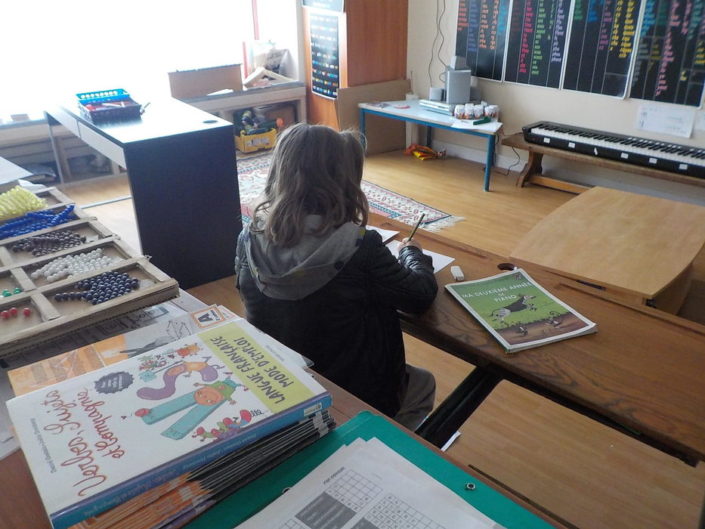
Choice of activities
Activities are primarily chosen by the children, according to their inner drive at the time.
Learning is a very intimate process, which puts us in touch with what's most alive in us. Just look at a young child learning to walk. He puts all his heart and energy into it. He falls and gets up again, never giving up on the mountain he's climbing. And when he's tired, he rests and picks up where he left off.
For this to happen, it's important to create a rich, interactive space where everyone can find something that arouses their interest and curiosity, and thus initiate a learning activity, whatever it may be. It's impossible for us to know when, or why, a child will start learning. Once again, this is a matter of individual development.
According to Bernard Collot, it's in a living structure, traversed by the flow of matter and energy, that spontaneous processes of structuring and organization can occur. Such a structure makes unpredictability and uncertainty normal, natural and efficient.
The high point of the day, around which the children's various activities revolve, is the Meeting, which brings together all the children present and evolving in the group, as well as all the accompanying adults present. A moment of personal and collective restitution of what has been and will be experienced, it enables everyone to situate themselves in their learning path, to set goals and to look back on these same goals. It also enables us to see how far we've come, beyond simply achieving the goal we've set.
Numerous permanent workshops are also set up, depending on requests, space and situations: writing workshop, song creation, experiments, ruler and colored board workshop, crafts, drawing/painting....
For the youngest children, we use the workshops developed by Maria Montessori.
Within these workshops, progression naturally follows the development of the child's language skills.
5 areas of expertise :
Languages for thinking and communicating
Methods and tools for learning
Personal development and citizenship
Understanding the world
Representations of the world and human activity
The program reference framework, linked to the common base, will enable teachers to situate the state of each individual's language in relation to the standards and expectations of national education.
Foreign languages
Foreign languages are alive and well at Écolline.
They are part of everyday life. Our main aim is not to have bilingual children, but to open them up to the world around them, which is becoming increasingly present. We also want to help them develop their inner structure through listening. What's more, languages provide an opportunity to work on mathematical language (combinatorics is algebra).
Let's stay open to the surprises that such an approach can bring out in children!
Natural method
It includes EVERYTHING that comes from adults and children on a daily basis:
Nursery rhymes, games and songs
Words and expressions
Meals or specialities
Virtual or imaginary tours
Convergent method
It includes all the special time-spaces surrounding a foreign language
Use of the Silent Way, Gattegno sound recognition boards for all languages
Specialist speakers
Specific projects: outings, trips, cultural events, getting to know a country, a people, a culture...
International exchanges and partnerships
Hosting foreign hoofers
Facilitating equipment
Books in several languages
CDs, DVDs, comics
Country-specific games Software
Language referents
Each teacher undertakes to take responsibility for bringing one or more languages to life at school.
In addition, we also plan to bring in guest speakers, depending on their abilities at the time, as well as on requests and proposals put forward by the children.
Inner posture
This is the basis and originality of our work.
It's through our inner posture that we approach others and the world. It's what makes us see things and life in a particular way.
It's what we might call our essence, our life drive, our inner light, our mission on earth... So many names are given to it! We don't choose any of them, but we're aware that it's this inner space that guides us in life and in our learning.
It's what we rely on in our work with children.
It's also what we rely on to guide each child towards their uniqueness and infinite potential.
The role and relational posture of the adult
The teacher is a researcher, observer, companion and facilitator.
Listening to the needs of each individual and of the group, he/she adopts a benevolent attitude.
Promotes self-esteem and recognizes the child's emotions.
Organizes the space and materials available to support the child's personal or group projects.
Circulates in the workshops, responding to requests and offering support.
Promotes dialogue and links with parents.
Vision - team concept
The teacher is a companion, a helper for the child.
The teacher is convinced that "every child is worth his or her weight in gold" and that his or her role is none other than to reveal and accompany the unveiling of this inner wealth.
The teacher accepts the adventure of learning and dares not to know and to seek with the children.
In this, the teacher is a learner in the same way as the children.
The teacher is the bearer of Ecolline's values and undertakes to respect them to the best of his or her ability.
The teaching team also has a supportive role to play for each of its teachers and those who work with them (support workers, volunteers). It is the place where any difficulties encountered can be raised; it is the place where solutions can emerge.
It is the core of the values and the guarantor that they will be put into practice in each of the activities offered.
It is responsible for the pedagogical work and each teacher, in his or her individuality and particularities, will be a rich and unique expression of it.
It meets on a regular basis to make this system a coherent and caring space.
This educational team is plural.
If we look at the cross-section of a tree, whatever its age, we can see a central core, the heart of the tree, its first burst of life... Then, all around, these concentric circles, both protective and signs of its growth; a two-way movement, inwards and outwards.
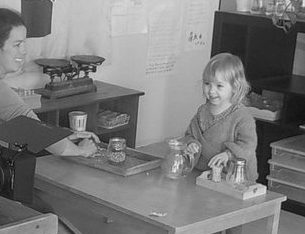
The child is at the heart of this system. Around him, a team of teacher-accompanists. And then, in a slightly more outer circle, accompanying adults whose role is a little broader. On the one hand, they enable the team in action to take a step back, if necessary, and on the other hand, they can intervene in the management of relationships between accompanying adults and children, or accompanying adults and parents. It is the guarantor of the values and commitments made by everyone involved in this adventure. A little further out, a circle managing relations with the world, both locally and in a more open space (artisans, businesses, intergenerational relations, financial backers...). And finally, the association itself, the legal and moral guarantor of the coherence of each of these systems and their smooth running.
All this while remaining aware that each circle, each system remains responsible for its own commitment.
Managing adult-child interactions
Shared governance:
School council (organization of daily activities and projects)
Peace council (management of rules for living together, conflict regulation)
Parents' role
In partnership with the educational team, participate in outings and accompany certain activities in conjunction with teachers.
Proposals for positive parenting training, workshops, conferences...
A relationship with nature and the environment
A school in the heart of nature, with a strong link to ecological practices and respect for the environment.
Gardening, vegetable gardening, orchards, animal husbandry, nature outings, knowledge of local flora and fauna.
Indoors
The plant world has a special place indoors.
As well as contributing to the beauty of the environment, the care and attention that children need to give it helps them become aware of the link that unites us, as humans, with the plant and mineral worlds.
This awareness also opens the door to the responsibilities that this entails for the "little man", and naturally allows us to tackle the notions of ecology, respect for the living, biodynamics...
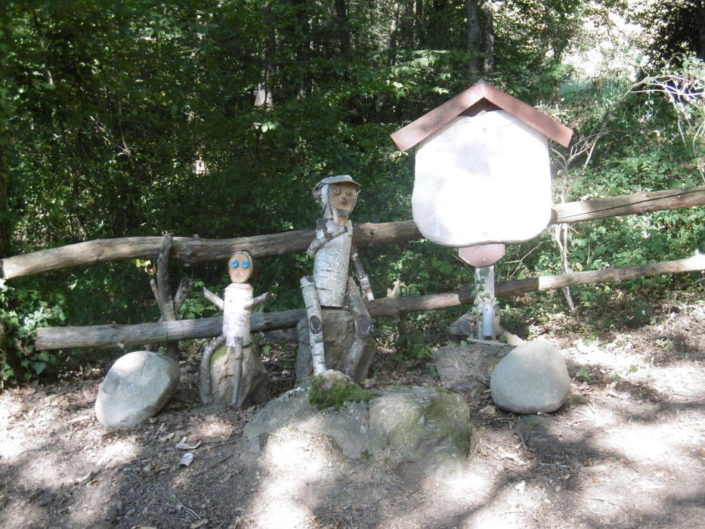
The table of seasons, proposed in Waldorf schools , has its place here.
It connects the child with the cycle of months and seasons.
It is a living, evolving space, welcoming what nature offers and shows us at each period.
It is linked to the notion of time and the life/death/life cycle.
We're planning for each child to be responsible for a plant on entering school, to help create an intimate bond with nature and the plant kingdom, a bond of love and responsibility...
... in the image of St Exupéry's Little Prince and his rose.
Outdoors
Outdoors, tending a garden - whether vegetable or flower - is an opportunity to reconnect with Mother Earth, and an inexhaustible source of links with fundamental learning.
Putting life back at the heart of the school can be done in a very simple way through the establishment, cultivation and management of a garden.
This also makes the link between what we grow and what we eat more real.
Wherever possible, it would be interesting if the garden's produce could be used to supply the canteen as a priority.
We also know today that gardens have real therapeutic virtues (cf. the work of Doctor France Pringuey in hospitals).
Relationship to the environment
Opening up to the local environment, village, intergenerational encounters, craftsmen, discovering trades... Opening up to the world, inter-class correspondence, linguistic practices ....
Time organization
Ecolline proposes to set up flexible opening times at all levels, in agreement with parents. What follows are proposals that will be adjusted as the adventure unfolds.
Daily rhythm
Arrival at school and departure at the end of the day are staggered.
In line with the seasonal cycle, Ecolline offers longer days in April, May, June, September and October... and even March... and shorter days in winter (November to February or March).
Meals
Meals are spread out between 11:30 a.m. and 1 p.m., so that children can eat when they need to and when they feel ready.
Once a week, or even every 2 weeks, or once a month at first, the meal is prepared by everyone, seemingly from A to Z. It's an opportunity to enjoy a selection of prepared dishes... a bit like a party! ... and an opportunity to learn a thousand things.
